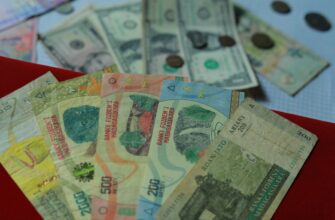- What is Crypto QSP? Understanding Quantstamp’s Mission
- How Quantstamp’s Security Protocol Works
- The QSP Token: Utility and Tokenomics
- Real-World Applications of Quantstamp Technology
- How to Buy and Store QSP Tokens
- Quantstamp’s Roadmap and Future Developments
- Frequently Asked Questions About Crypto QSP
- What makes Quantstamp different from other audit firms?
- Can I stake QSP tokens for passive income?
- How often should projects re-audit their smart contracts?
- Is QSP an ERC-20 token?
- What happens if Quantstamp misses a vulnerability?
What is Crypto QSP? Understanding Quantstamp’s Mission
Crypto QSP refers to Quantstamp (QSP), a pioneering blockchain security protocol designed to audit smart contracts and enhance Web3 ecosystem safety. Founded in 2017, Quantstamp addresses critical vulnerabilities in decentralized applications (dApps) by providing automated and manual auditing solutions. The QSP token powers this ecosystem, enabling users to request security audits while rewarding validators who verify code integrity. As smart contracts manage billions in digital assets, Quantstamp’s role in preventing exploits like reentrancy attacks and logic errors makes QSP a vital component of blockchain infrastructure.
How Quantstamp’s Security Protocol Works
Quantstamp combines automated scanning with human expertise through a decentralized network:
- Automated Vulnerability Detection: AI-powered scanners analyze smart contract code for 200+ common vulnerabilities in real-time
- Manual Expert Review: Certified security researchers conduct in-depth audits for complex contracts
- Validation Nodes: QSP token holders stake coins to operate nodes that verify audit results
- Bug Bounty Programs: Incentivizes white-hat hackers to identify undiscovered vulnerabilities
- Audit Certificates: Successfully vetted contracts receive on-chain verification badges
This multi-layered approach has secured projects like Ethereum 2.0, Binance Smart Chain, and Polygon, preventing potential losses exceeding $500M annually.
The QSP Token: Utility and Tokenomics
QSP serves as the economic engine of Quantstamp’s ecosystem with these key functions:
- Audit Payments: Developers pay audit fees in QSP tokens
- Staking Rewards: Validators earn QSP for confirming accurate audits
- Governance Rights: Token holders vote on protocol upgrades
- Bug Bounties: Rewards for vulnerability discoveries distributed in QSP
With a fixed supply of 1 billion tokens, QSP’s deflationary model includes regular token burns from audit fees. Approximately 65% of tokens circulate publicly, with the remainder allocated to ecosystem development and team incentives vested over multiple years.
Real-World Applications of Quantstamp Technology
Quantstamp’s security solutions protect diverse blockchain sectors:
- DeFi Platforms: Audits for lending protocols (e.g., Compound, Aave) securing $30B+ TVL
- NFT Marketplaces: Preventing minting exploits and metadata manipulation
- Blockchain Bridges: Securing cross-chain asset transfers
- Enterprise Solutions: Custom audits for corporate blockchain implementations
- New Layer-1s: Foundational security for emerging blockchain networks
How to Buy and Store QSP Tokens
Acquiring QSP involves three simple steps:
- Exchange Purchase: Buy QSP on major exchanges like Binance, KuCoin, or Gate.io using BTC, ETH, or USDT
- Wallet Transfer: Withdraw tokens to a secure Web3 wallet (MetaMask, Trust Wallet, or Ledger hardware wallet)
- Staking Options: Stake QSP through Quantstamp’s official portal to earn rewards
Always verify contract addresses when transferring tokens and enable two-factor authentication on exchange accounts.
Quantstamp’s Roadmap and Future Developments
Quantstamp’s 2023-2025 strategy focuses on:
- Expanding automated audit coverage to new programming languages
- Developing AI-powered predictive threat modeling
- Launching decentralized insurance pools for audited projects
- Integrating zero-knowledge proof verification systems
- Growing validator network to 10,000+ nodes
These innovations position QSP to capitalize on the projected $20B smart contract security market by 2028.
Frequently Asked Questions About Crypto QSP
What makes Quantstamp different from other audit firms?
Unlike traditional audit companies, Quantstamp combines scalable automation with decentralized verification, creating tamper-proof audit trails while significantly reducing costs and turnaround times.
Can I stake QSP tokens for passive income?
Yes. By staking QSP in Quantstamp’s validation node system, users currently earn 7-12% APY while helping secure the network. Rewards vary based on staking duration and network demand.
How often should projects re-audit their smart contracts?
Quantstamp recommends quarterly audits for high-value DeFi protocols and after any major code updates. Their subscription model offers continuous monitoring for critical applications.
Is QSP an ERC-20 token?
Yes, QSP operates on the Ethereum blockchain as an ERC-20 token, though Quantstamp’s protocol is chain-agnostic and audits contracts across multiple networks including BSC, Polygon, and Solana.
What happens if Quantstamp misses a vulnerability?
Quantstamp’s decentralized insurance fund (backed by audit fees) compensates affected projects. Their accuracy rate exceeds 99.5% for critical vulnerabilities across 2,000+ audits conducted since 2018.








